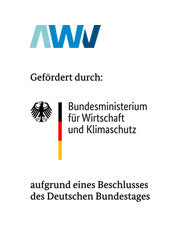Which role do digitalisation or e-Residency play as economic location factors?
Well, I guess we still do not really fully know. But the initial core was very much locationrelated, to make life easier for the existing partners and investors, who already have this sort of location relation to us. We are still at the very beginning. As I said, we have 15,000 e-Residents, they have created about thousand new companies , so we are now seeing that they are bringing some business here, they are creating some new jobs here, if only in small numbers at the moment. The sample pool is still small, but we see the fact, it is already visible. That was the basic idea: to use that as a vehicle to bring more business here to the service providers and also bring new service providers in.
You said that in 1991 data protection was no big issue and that Estonians have a pragmatic approach to that topic. How about the current European data protection regulations? Are they a problem in Estonia like “Oh god, Brussels again”?
We are very pro Brussels. We very rarely think that something bad comes from there. We are a very small country and in a sort of at the edge of Europe. We understand the need and the practical use of common rules and regulations. If you ask an Estonian, we think about the data protection more relaxed, but they have the necessary level. At the same time, we also would like to serve people and companies across the borders better. But in order to be able to, data protection rules also have to be aligned the same way if you operate across borders. We need common rules, even if we would make them slightly differently.
At the e-Estonia showroom we learned that the Estonian government started to use citizens’ data on a larger scale – like big data. How do the Estonian citizens take that, do you discuss that issue with the citizens or not?
In Estonia we have a joke that we do not have big data. But leaving that aside, this is really one of our weak spots so far, how you make more use of data in the government. In our current strategy this is one of the areas we will try to catch-up with. We have started with capacity building. We do have some flagship projects our government CIO has initiated, one of them is economic trends. And the background is that we have now, after some reforms, a very good overview of what is happening in economy in almost real time. We make business report almost instantly every transaction above 1,000 Euros. We started with it basically to ensure tax compliance. Now we compare the data and as we do that, we have a pretty good understanding how transactions are flowing. We really use these data for almost real time economic statistics and we can see how is one region or how is one sector doing. If we have that knowledge, we can direct employment measures in that area or sector.
What do you expect from the next let’s say 5 years, what will the challenges be for Europe and Estonia in relation to e-Government approaches?
We like to keep things simple and that usually means open. But if you ask us what are the challenges I think the sort of core challenge in our case is the same as everywhere. Even if we managed to make our administration, our public servants to support e-Government and e-Services a bit more than in some other countries, this is still our number one obstacle, how to really get this whole line of departments really appreciate and apprehend what technology can help them do in their everyday field, in their everyday service, and how they make the policies. Me and my colleagues are thinking about how do we really create the conditions or incentivesa and then support it with capacity planning. That has to do with how we procure things and actually how we train our managers. That has to do with how do we collaborate for example with start-ups which happens on an ad-hoc basis right now, but perhaps we can get some system which replaces that. We still actually have very few digital leaders among the top public servants. Even if they do not mind the technology, and they are not against it, they also do not really know what to demand from it. If we manage to make at least some break there, that would already be a massive progress.
Thank you very much, Mr. Sikkut, and all the best for the future development of e-Government and e-Services in Estonia!

